Are you wondering how stress and anxiety are affecting your body? When was the last time you had a good night of sleep? Do you find yourself not able to turn off your brain? Are you constantly reaching for your go-to comfort foods? You can bring your body back to homeostasis with mindfulness and reflexology.
According to the American Psychological Association, stress is common in many Americans’ lives—approximately 77% of adults experience physical symptoms caused by stress. When stress and anxiety trigger the body, it can cause gastrointestinal motility and secretion distress, resulting in a nervous stomach. The body’s natural response to counteract the nervousness is signaling to the adrenal to release stress control hormones (Cortisol, Aldosterone, Dehydroepiandrosterone (DHEA), Epinephrine Norepinephrine) to keep you calm.
Brain and Gut Connection
The brain’s and the gut’s connection is known as the gut-brain axis. Stress and anxiety can disrupt this axis, leading to an imbalance in many body systems, including normal gut functions. The gut contains a complex network of nerves called the enteric nervous system, which communicates with the brain.
Some examples of how stress and anxiety can significantly affect and impact various body systems:
- Nervous System: Stress triggers the release of stress hormones like cortisol and adrenaline, temporarily enhancing alertness and reaction times. However, prolonged stress can negatively impact the nervous system, leading to headaches, difficulty concentrating, memory problems, and increased susceptibility to mood disorders like depression and anxiety.
- Cardiovascular System: When faced with stress, the body enters a “fight-or-flight” response, causing a rapid increase in heart rate and blood pressure. While this response is normal in short bursts, chronic stress can lead to long-term hypertension, increased risk of heart disease, and cardiovascular problems.
- Immune System: Stress hormones can suppress the immune system, making you more susceptible to infections, allergies, and autoimmune disorders. Prolonged stress can impair the immune response, resulting in slower wound healing and increased vulnerability to various illnesses.
- Digestive System: Stress can affect the digestive system in multiple ways. It may lead to increased production of stomach acid, contributing to conditions like acid reflux or ulcers. Stress can cause changes in appetite, leading to overeating or undereating. It can also disrupt normal bowel movements, resulting in diarrhea or constipation.
- Respiratory System: In times of stress, breathing patterns may become more rapid and shallow, leading to hyperventilation or shortness of breath. Stress can trigger or worsen symptoms for individuals with pre-existing respiratory conditions like asthma.
- Musculoskeletal System: Chronic stress can lead to muscle tension and tightness, which may result in headaches, migraines, back pain, and general body aches. Long-term stress can also contribute to the development of musculoskeletal disorders like tension myalgia or fibromyalgia.
- Reproductive System: Stress can affect the reproductive system differently in males and females. In males, chronic stress may lead to a decrease in testosterone levels, affecting libido and fertility. Stress can disrupt the menstrual cycle in females, leading to irregular periods or even the absence of menstruation. It may also contribute to fertility problems.
Find Help
It’s important to note that the impact of stress and anxiety can vary from person to person, and individual responses may differ. If you’re experiencing chronic stress or anxiety, seeking support and advice from medical health care practitioner, energy healer, massage therapist, or energy healers.
Disclaimer: Complimentary therapy like Reflexology and energy healers do not replace traditional health care. If you have questions about Reflexology, talk to your healthcare provider or email us your Reflexology questions at [email protected]
Live a Mindful Life
Living a mindful life involves cultivating awareness and being fully present in the current moment. Mindfulness is a skill that takes practice and patience. Start small and gradually incorporate mindful strategies into your daily life. Over time, you’ll notice the positive impact of having a more conscious life.
Here are some strategies to help you incorporate mindfulness into your daily life:
- Practice Mindful Meditation: Consistent meditation can enhance your overall mindfulness and well-being. Set aside a few minutes each day to engage in formal mindfulness meditation. Find a quiet space, sit comfortably, and focus on your breathing. When your mind wanders, gently bring it back to the present moment.
- Be Present in Everyday Activities: Bring mindfulness to your daily routines and activities. Pay attention to your senses and fully engage in what you’re doing. Whether eating, walking, or washing dishes, be fully present, savoring the experience, and noticing the details.
- Cultivate Gratitude: Take time to appreciate the present moment and express gratitude for the things you have. Appreciation through journaling, setting aside a few minutes each day to reflect on what you’re grateful for, or expressing gratitude to others.
- Slow Down and Breathe: In our fast-paced lives, it’s important to slow down and take deep breaths intentionally. When you feel rushed or overwhelmed, pause for a moment, take a few deep breaths, and bring your attention back to the present. This simple act can help you feel more grounded and centered.
- Engage in Mindful Movement: Engage in activities that promote mindful movement, such as yoga, tai chi, or walking in nature. These practices encourage focusing on your body’s sensations and the present moment.
- Practice Non-Judgmental Awareness: Observe your thoughts, emotions, and sensations without judgment. Allow them to arise and pass without getting caught up in them or labeling them as good or bad. This non-judgmental awareness helps you develop a more accepting and compassionate attitude toward yourself and others.
- Limit Distractions: Minimize distractions that pull you away from the present moment, such as excessive use of electronic devices or multitasking. Create designated technology-free times or spaces to engage in mindful activities fully.
- Cultivate Mindful Relationships: Practice active listening and being fully present when interacting. Give your family and friends your undivided attention to help foster more meaningful connections.
Check Out the HealingPlaceEnergySchool for our online course: Mind-Body Connection Through Daily Practice Course
Mind-body connection? We all heard of this term, mind-body connection, but what is it? How is our mind connected to our body?
Some wonder if the mind is part of the body or the body the part of the mind? And which one dominates. The mind and the body are not two separate entities; instead, they are both intertwined in what is known as the mind-body connection.
What will you learn in the 3-part Mind-Body Connection course:
- Lesson 1: Know Your Mind-Body Connection? 19:14
- Lesson 2: Mind-Body Intuitive Development Exercise 10:55
- Lesson 3: Connect Your Mind-Body Meditation 20:13
For more information about the 3-part Mind-Body Connection
About the Reflexologist, Writer, and Course Creator
 Helen Chin Lui is a Certified Reflexologist, Certified Energy Medicine Practitioner, Reiki Master, and teacher. She is the owner of the Healing Place LLC and Healing Place Energy School, LLC
Helen Chin Lui is a Certified Reflexologist, Certified Energy Medicine Practitioner, Reiki Master, and teacher. She is the owner of the Healing Place LLC and Healing Place Energy School, LLC
Healing Place LLC
 Healing Place LLC specializes in helping people of all ages break the pain cycles of chronic pain, chronic digestive problems and balances hormones naturally. If you would like to learn how Reflexology can support your health, please schedule a FREE consultation on the HealingPlaceMedfield.com website or call (508) 359-6463. Or find a certified and qualified reflexologist in your area.
Healing Place LLC specializes in helping people of all ages break the pain cycles of chronic pain, chronic digestive problems and balances hormones naturally. If you would like to learn how Reflexology can support your health, please schedule a FREE consultation on the HealingPlaceMedfield.com website or call (508) 359-6463. Or find a certified and qualified reflexologist in your area.
Healing Place Energy School LLC
 Want to learn how to better care for yourself and your loved one with holistic medicine? Become a member of the HealingPlaceEnergySchool.com. We offer courses self-care courses: Energy Medicine, Mindful, Reflexology, Meditations, and Self-Awareness. All courses are taken from the privacy of your home. These are empowering self-care and self-help classes that teach lifelong skills.
Want to learn how to better care for yourself and your loved one with holistic medicine? Become a member of the HealingPlaceEnergySchool.com. We offer courses self-care courses: Energy Medicine, Mindful, Reflexology, Meditations, and Self-Awareness. All courses are taken from the privacy of your home. These are empowering self-care and self-help classes that teach lifelong skills.
HealingPlaceEnergySchool Store
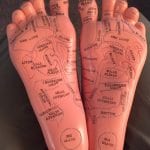 Purchase either a pair of foot or ear reflexology model
Purchase either a pair of foot or ear reflexology model
 Helen Chin Lui’s Personal Empowering and Self-Growth Books
Helen Chin Lui’s Personal Empowering and Self-Growth Books
Get Helen’s Books today and share the knowledge. Know Your Chakras and Foot Reflexology to Promote Relaxation.

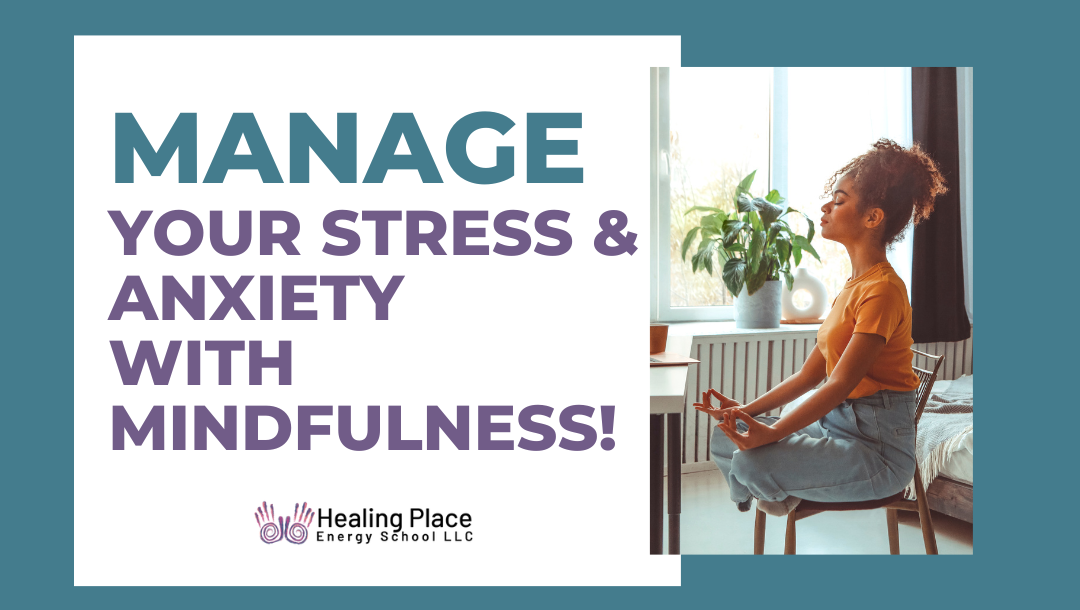
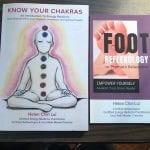 Helen Chin Lui’s Personal Empowering and Self-Growth Books
Helen Chin Lui’s Personal Empowering and Self-Growth Books

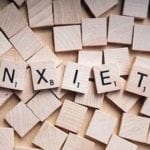



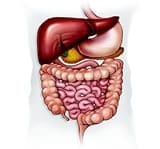
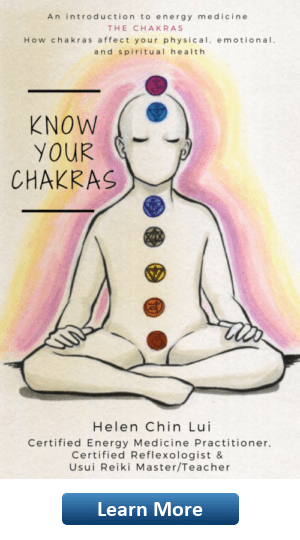
 The Healing Place LLC helps all ages to find relief from chronic pain, chronic digestive problems and balance hormones naturally. We practice COVID19 safety. Don’t forget to check on our online school HealingPlaceEnergySchool.com. Thank you.
The Healing Place LLC helps all ages to find relief from chronic pain, chronic digestive problems and balance hormones naturally. We practice COVID19 safety. Don’t forget to check on our online school HealingPlaceEnergySchool.com. Thank you.
Recent Comments